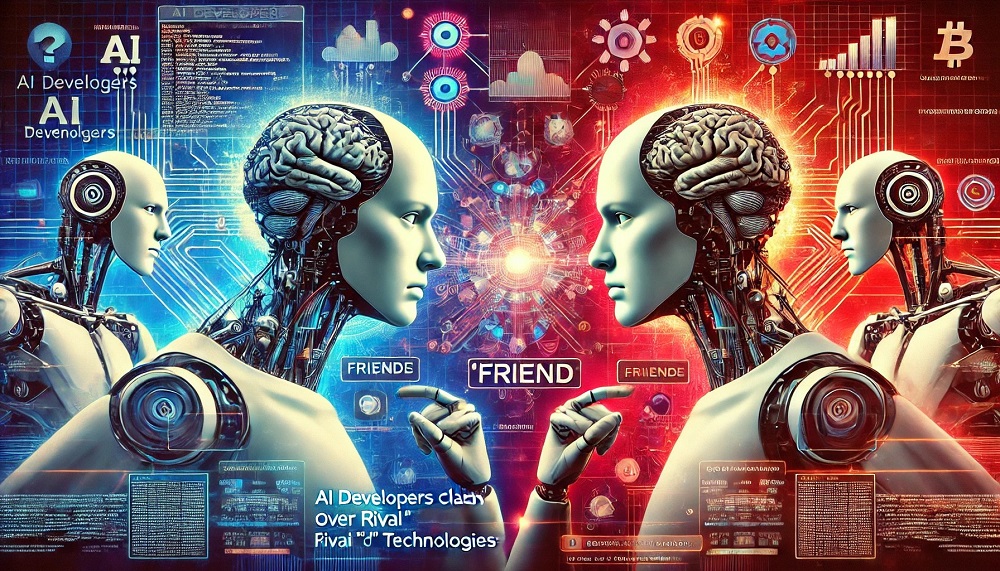Two developers, Nic Shevchenko and Avi Schiffmann, are at the center of an online feud over their AI projects, both named “Friend.” Shevchenko’s version of Friend is an open-source AI wearable designed to record conversations, provide summaries, and offer advice.
This device, marketed by his company, Based Hardware, is positioned as a tool for enhancing productivity and interaction through technology. It allows users to build and customize the device, fostering a community-driven approach to innovation.
The FRIEND device boasts over 24 hours of battery life, is available as a developer kit, and can connect to a mobile app on iOS and Android platforms.
Consumer-Focused vs. Community-Driven AI
In contrast, Schiffmann’s Friend.com offers a consumer-focused AI companion for emotional support. This pendant-like device connects to a smartphone via Bluetooth and has a battery life of 15 hours.
Using AI models like ChatGPT, it listens to conversations and responds with personalized feedback to provide companionship. Schiffmann’s approach focuses on a polished user experience aimed at widespread consumer adoption.
The rivalry between the two projects intensified when Shevchenko took to Twitter, mocking Schiffmann with a diss track reminiscent of rap feuds. He accused Schiffmann of copying his concept and criticized the large sum ($1.8M) spent on the domain name, suggesting that Schiffmann’s project lacks substance despite its flashy branding.
Privacy and Ethical Concerns
The broader online conversation about these projects reflects deep-seated concerns about privacy and the ethics of AI companions. Shevchenko’s open-source model is praised for its transparency, allowing users to have control over their data by updating API endpoints themselves.
However, the constant recording and listening features of both devices have raised alarms among privacy advocates. Users question the implications of having AI devices that are always listening, particularly in personal and intimate settings.
Critics of Schiffmann’s approach fear that AI companions could undermine human relationships since they replace genuine human interaction with artificial responses. Conversely, supporters argue that AI companions can offer valuable assistance, especially for those who are isolated or in need of emotional comfort.
Friend Launch Attracts Mixed Reactions
Public reactions to the “Friend” launch have been mixed. Some are excited about the idea of a device designed purely for companionship.
Others express concern, likening it to an episode of *Black Mirror*, a television series known for its dark and often unsettling portrayals of technology’s impact on society.
Market Challenges for AI Wearables
Despite its innovative concept, the “Friend” enters a market where AI-powered devices have had mixed success. Recent launches of similar products have faced criticism for being incomplete or unhelpful.
One such device, the Rabbit, was poorly received, with tech reviewers calling it unfinished and barely functional. Another, Humane’s AI pin, which was designed to assist with calls, messages, and videos, also received negative reviews following its release. However, Schiffman’s “Friend” necklace focuses on a unique niche — providing users with a sense of companionship.
